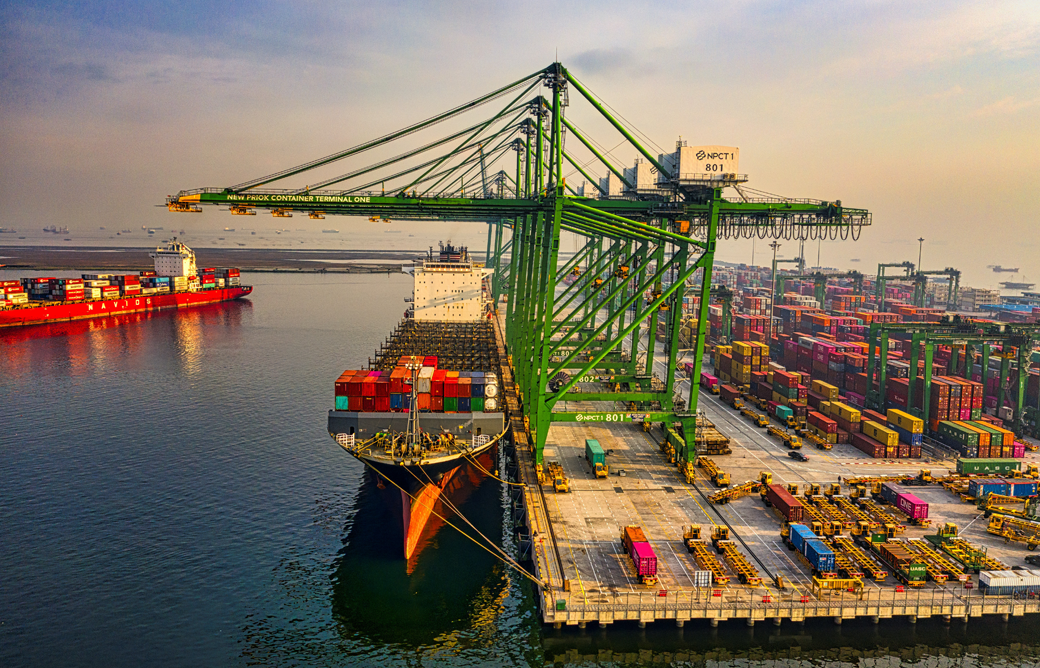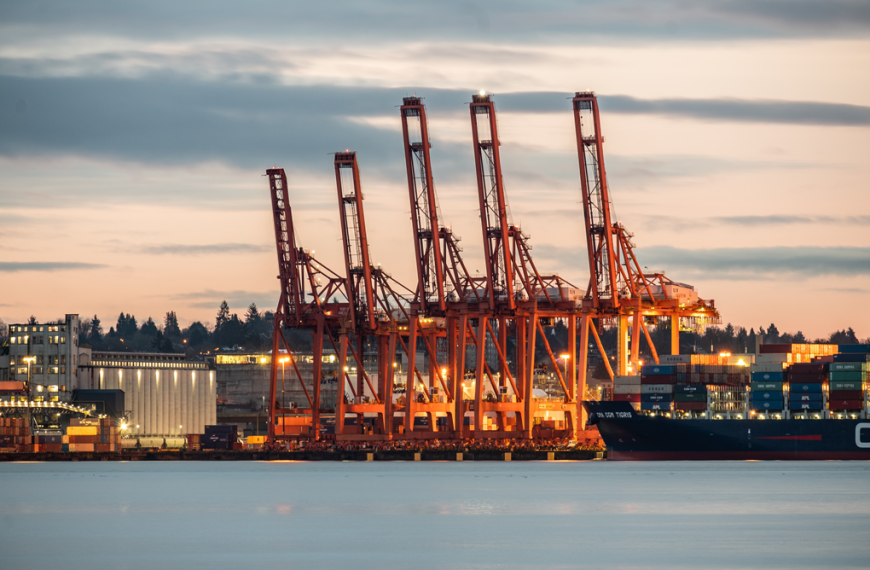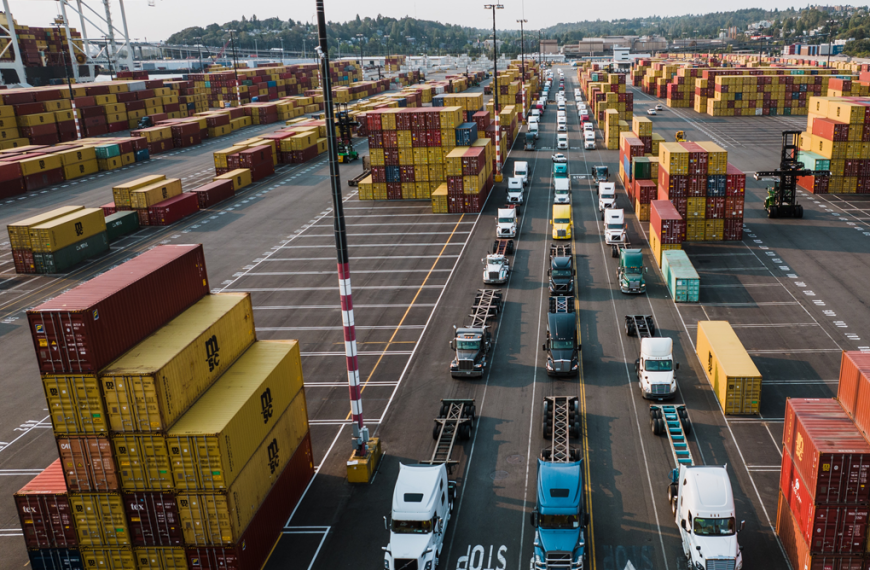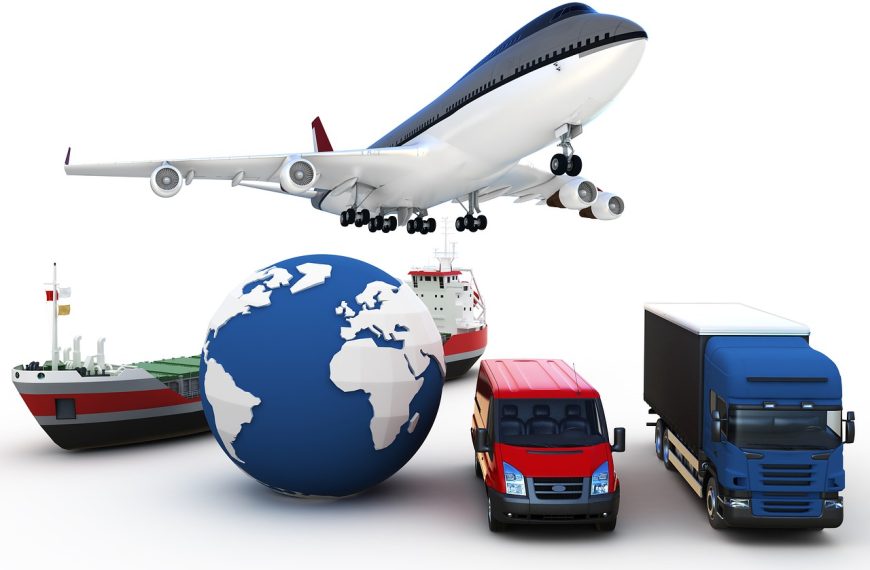1. Introduction
Welcome to the ultimate guide to international shipping. Whether you’re a business owner looking to expand your global reach or an individual sending a package to a loved one overseas, understanding the ins and outs of international shipping is essential. In this comprehensive guide, we will explore everything you need to know about international shipping, from choosing the right shipping company to navigating customs regulations and finding the best shipping rates.
- 1. Introduction
- 2. Understanding International Shipping
- 3. Choosing an International Shipping Company
- Related Articles
- 4. International Shipping Services
- 5. How to Ship Internationally
- 6. Finding the Best International Shipping Rates
- 7. Tracking and Insurance
- 8. International Shipping Tips and Best Practices
- 9. International Shipping FAQs
- 10. Conclusion
- Related Articles
2. Understanding International Shipping
What is International Shipping?
International shipping refers to the transportation of goods and packages from one country to another. It involves the coordination of various logistics processes, including packaging, labeling, documentation, and customs clearance. International shipping allows businesses to expand their customer base globally and enables individuals to send packages to friends, family, or customers in different countries.
Benefits of International Shipping
The benefits of international shipping are vast. For businesses, it opens up new markets and opportunities for growth. It allows them to reach customers in different countries and tap into the global marketplace. International shipping also enables businesses to source materials and products from overseas at competitive prices.
For individuals, international shipping allows them to stay connected with loved ones who live abroad. Whether it’s sending a care package or an important document, international shipping provides a reliable and convenient way to stay connected across borders.
Challenges of International Shipping
While international shipping offers numerous benefits, it also comes with its fair share of challenges. One of the major challenges is navigating customs regulations and dealing with the complexity of international trade laws. Each country has its own set of customs requirements and import/export regulations, which can be overwhelming for both businesses and individuals.
Another challenge is ensuring the safe and timely delivery of packages. International shipments are subject to various factors that can affect delivery, such as customs delays, weather conditions, and transportation issues. It’s crucial to choose a reliable shipping company that has experience in handling international shipments and a strong network of partners worldwide.
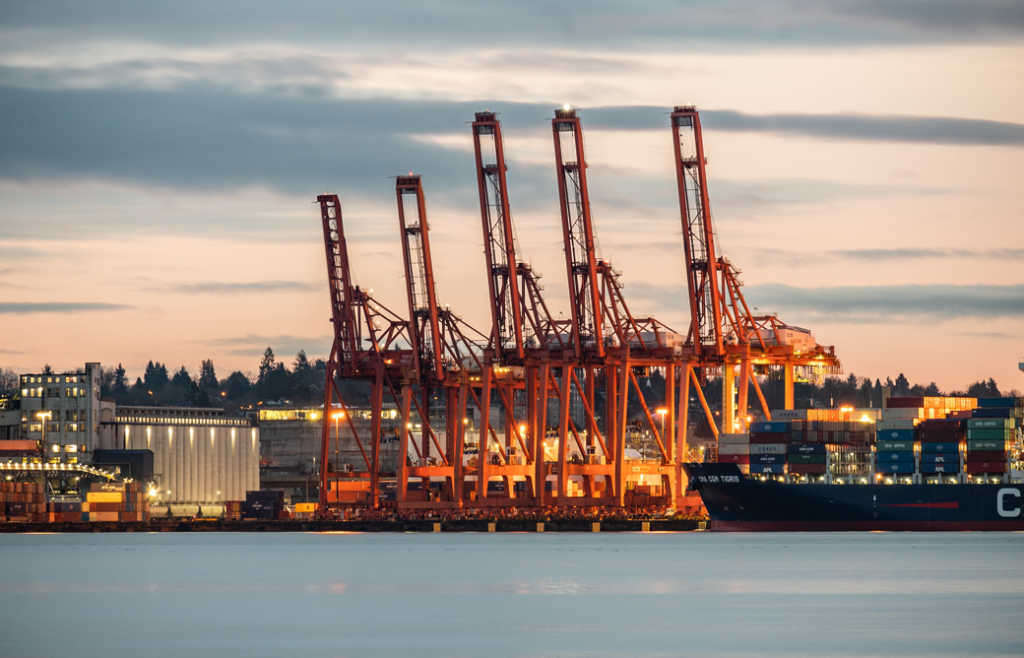
3. Choosing an International Shipping Company
Factors to Consider
When choosing an international shipping company, there are several factors to consider. Here are some key factors to keep in mind:
- Reputation and Experience: Look for a shipping company with a good reputation and extensive experience in international shipping. Check customer reviews and ratings to gauge their reliability and customer satisfaction.
- Network and Coverage: Ensure that the shipping company has a wide network of partners and coverage in the countries you plan to ship to. A strong network ensures smooth transit and timely delivery.
- Services Offered: Consider the range of services offered by the shipping company. Do they provide door-to-door delivery? Can they handle both air and ocean freight? Choose a company that offers services tailored to your specific needs.
- Customer Support: Good customer support is crucial when it comes to international shipping. Look for a company that provides responsive and knowledgeable customer support to assist you throughout the shipping process.
- Pricing: Compare shipping rates and fees among different shipping companies. However, keep in mind that the cheapest option may not always be the best in terms of service quality and reliability.
Related Articles
Top International Shipping Companies
There are several renowned international shipping companies that excel in providing reliable and efficient shipping services. Here are some of the top international shipping companies to consider:
- FedEx
- UPS
- DHL
- USPS
- TNT Express
- Aramex
- Maersk
- CMA CGM
- MSC Mediterranean Shipping Company
- DB Schenker
These companies have a global presence, extensive networks, and a wide range of services to meet different shipping needs. Research each company’s strengths and expertise to find the best fit for your specific requirements.
4. International Shipping Services
International shipping services encompass a range of options to suit different shipping needs. Let’s explore some of the most common international shipping services available.
Expedited Shipping
Expedited shipping is ideal for time-sensitive shipments that require fast delivery. This service offers shorter transit times by prioritizing your package over others. It is often more expensive than other shipping options but provides the advantage of quicker delivery.
Economy Shipping
Economy shipping, also known as standard shipping, is a more cost-effective option for less time-sensitive shipments. This service typically has longer transit times but offers a more affordable shipping rate. Economy shipping is suitable for non-urgent packages or shipments with less strict delivery deadlines.
Door-to-Door Shipping
Door-to-door shipping provides the convenience of picking up packages from the sender’s location and delivering them directly to the recipient’s doorstep. This service eliminates the need for the sender or recipient to arrange transportation to and from a shipping depot or port.
Port-to-Port Shipping
Port-to-port shipping involves the transportation of goods from one port to another. It is commonly used for large shipments or bulk cargo. With port-to-port shipping, the responsibility of arranging transportation to and from the ports lies with the sender and recipient.
Air Freight
Air freight is the transportation of goods by air. It offers the advantage of faster transit times, making it ideal for time-sensitive shipments. Air freight is commonly used for perishable goods, high-value items, and urgent shipments.
Ocean Freight
Ocean freight, also known as sea freight, involves shipping goods by ocean vessels. It is a cost-effective option for large and heavy shipments. Ocean freight has longer transit times compared to air freight but offers significant savings for businesses shipping in bulk.
5. How to Ship Internationally
Packaging and Labeling
Proper packaging and labeling are crucial when shipping internationally to ensure the safe and secure transportation of your goods. Here are some guidelines to follow:
- Use sturdy and appropriate packaging materials to protect your items during transit.
- Ensure that the packaging is properly sealed and secure.
- Label the package with the recipient’s complete address, including the country, in clear and legible writing.
- Include your return address on the package.
- If required, include any necessary customs forms or documentation on the package’s exterior.

Customs Documentation
When shipping internationally, customs documentation is essential for the smooth clearance of your package through customs. The specific documents required may vary depending on the destination country and the contents of the package. Common customs documents include:
- Commercial Invoice: This document provides details about the contents of the package, including their value and quantity.
- Proforma Invoice: Similar to a commercial invoice, a proforma invoice is used for shipments that are not for commercial purposes, such as gifts or samples.
- Packing List: A packing list provides a detailed breakdown of the contents of the package, including the weight and dimensions of each item.
- Customs Declaration Form: This form declares the nature of the contents and their value for customs purposes.
It’s essential to accurately complete and attach the necessary customs documents to avoid delays or issues at customs.
Shipping Restrictions and Prohibited Items
Different countries have specific restrictions and regulations regarding the importation of certain goods. It’s crucial to be aware of these restrictions and avoid shipping prohibited items. Commonly prohibited items include:
- Dangerous goods, such as flammable or explosive materials
- Controlled substances, including narcotics and drugs
- Weapons and firearms
- Live animals or animal products
- Counterfeit or pirated goods
- Restricted or regulated items, such as certain medications or agricultural products
Before shipping internationally, consult the customs regulations of the destination country to ensure compliance and avoid any legal or logistical complications.
6. Finding the Best International Shipping Rates
Comparing Shipping Rates
When it comes to international shipping, finding the best shipping rates is essential to minimize costs. Here are some tips for comparing shipping rates:
- Request Quotes: Contact multiple shipping companies or use online shipping calculators to obtain quotes for your shipment. Provide accurate details such as package dimensions, weight, and destination to receive accurate quotes.
- Consider Additional Fees: In addition to the base shipping rate, be aware of any additional fees or surcharges that may apply, such as fuel surcharges, customs clearance fees, or remote area surcharges.
- Evaluate Transit Times: Consider the transit times offered by different shipping companies. While cost is important, ensure that the delivery timeframe aligns with your requirements.
- Review Customer Reviews and Ratings: Research the reputation of the shipping companies you are considering. Read customer reviews and ratings to gauge their reliability and quality of service.
Factors Affecting Shipping Rates
Several factors can influence international shipping rates. Here are some key factors to keep in mind:
- Package Dimensions and Weight: The size and weight of your package play a significant role in determining shipping rates. Larger and heavier packages may incur higher shipping costs.
- Destination: The distance between the origin and destination countries affects shipping rates. Longer distances generally result in higher shipping costs.
- Shipping Method: The chosen shipping method, such as air freight or ocean freight, will impact the shipping rate. Expedited services typically cost more than economy shipping.
- Customs Duties and Taxes: Import duties and taxes imposed by the destination country may affect the overall cost of shipping. These fees are typically the responsibility of the recipient.
Tips for Saving on International Shipping Costs
While international shipping costs can add up, there are several strategies to help save on shipping expenses:
- Consolidate Shipments: If you frequently ship internationally, consider consolidating multiple packages into one shipment. This can help you qualify for better shipping rates and reduce overall costs.
- Optimize Packaging: Use packaging materials that are appropriate for the size and weight of your items. Avoid excessive packaging that adds unnecessary weight and increases shipping costs.
- Explore Shipping Discounts: Some shipping companies offer discounts for volume shipping or regular customers. Inquire about any available discounts or loyalty programs.
- Negotiate Rates: If you regularly ship large volumes, consider negotiating shipping rates with your preferred shipping company. They may be willing to offer discounted rates based on your shipping volume.
- Stay Informed: Keep up-to-date with any changes in shipping regulations or surcharges that may affect your shipping costs. Stay informed about any new shipping discounts or promotions offered by shipping companies.
7. Tracking and Insurance
Tracking Your Shipment
Tracking your international shipment provides visibility and peace of mind throughout the shipping process. Most shipping companies offer tracking services that allow you to monitor the progress of your package. You can typically track your shipment using a tracking number provided by the shipping company.
To track your package, visit the shipping company’s website and enter the tracking number in the designated tracking tool. This will provide you with real-time updates on the location and status of your shipment. If you’re shipping through multiple carriers, consider using a third-party tracking service that consolidates tracking information from different carriers into one platform.
Insurance for International Shipments
Insurance is an essential aspect of international shipping, as it provides protection in case of loss, damage, or theft of your package. Many shipping companies offer insurance options for international shipments. It’s recommended to consider purchasing insurance, especially for high-value items.
When insuring your shipment, ensure that you understand the coverage limits and any exclusions or limitations that may apply. Keep detailed records, including photographs and a detailed description of the contents, to support your insurance claim in case of any issues.
8. International Shipping Tips and Best Practices
Proper Packaging and Handling
Proper packaging and handling are crucial to ensure the safe delivery of your international shipments. Here are some tips to follow:
- Use sturdy and appropriate packaging materials to protect your items during transit.
- Securely seal your packages to prevent any damage or loss of contents.
- Make sure fragile items are properly cushioned and labeled as such.
- Follow any specific packaging guidelines provided by the shipping company.
- Clearly label packages with the recipient’s address, contact information, and any necessary customs documentation.
Communication with Customers
If you’re a business shipping internationally, effective communication with your customers is vital. Here are some best practices:
- Provide clear and accurate information about shipping times, tracking details, and any potential customs fees or taxes.
- Offer multiple communication channels, such as email, phone, or live chat, to address customer inquiries and concerns.
- Keep customers informed about any delays or issues with their shipments and provide updates as necessary.
- Provide tracking information and instructions on how to track the package so customers can monitor the progress of their shipment.
Managing Returns and Refunds
Dealing with returns and refunds for international shipments can be complex. Here are some tips for managing returns and refunds effectively:
- Clearly communicate your return policy to customers, including any additional costs or requirements for international returns.
- Provide a simple and streamlined process for customers to initiate returns or request refunds.
- Be responsive to customer inquiries and provide timely updates on the status of returns or refunds.
- Consider offering return labels or arranging return shipping for international customers to simplify the process.
Dealing with Customs and Duties
Navigating customs regulations and duties is a critical aspect of international shipping. Here are some tips to help you navigate customs procedures:
- Familiarize yourself with the customs regulations of the destination country to ensure compliance.
- Accurately complete all necessary customs documentation and attach them to the package.
- Provide detailed and accurate descriptions of the package contents to facilitate customs clearance.
- Be aware of any applicable customs duties, taxes, or fees and communicate this information to customers in advance.
9. International Shipping FAQs
How long does international shipping take?
The duration of international shipping can vary based on several factors, including the shipping company, shipping method, destination, and customs clearance processes. Expedited shipping services generally offer shorter transit times, while economy shipping services may have longer delivery times. It’s crucial to check with the shipping company for estimated delivery times to your specific destination.
Can I ship multiple packages internationally?
Yes, you can ship multiple packages internationally. Many shipping companies offer services for bulk shipping or multiple package shipments. Consolidating multiple packages into one shipment can help you qualify for better shipping rates and streamline the shipping process.
What are the customs fees and duties?
Customs fees and duties are charges imposed by the destination country’s customs authorities. These fees are typically based on the value of the imported goods and vary depending on the country’s customs regulations. It’s essential to research and understand the customs fees and duties of the destination country before shipping internationally.
How do I handle lost or damaged shipments?
If your international shipment is lost or damaged, follow these steps:
- Contact the shipping company and provide them with the necessary information, including the tracking number and details about the lost or damaged package.
- File a claim with the shipping company’s customer service department.
- Provide any supporting documentation, such as photographs or receipts, to substantiate your claim.
- Follow the instructions provided by the shipping company to resolve the issue and potentially receive compensation.
10. Conclusion
International shipping offers businesses and individuals the opportunity to connect with the global marketplace and send packages across borders. By understanding the intricacies of international shipping, choosing the right shipping company, and following best practices, you can ensure a smooth and successful shipping experience. Use this comprehensive guide as your reference to navigate the world of international shipping and unlock new opportunities for growth and connection.
Remember to always stay informed about customs regulations, packaging requirements, and any applicable fees or duties. With the right knowledge and preparation, you can confidently ship internationally and expand your reach to customers around the world.

